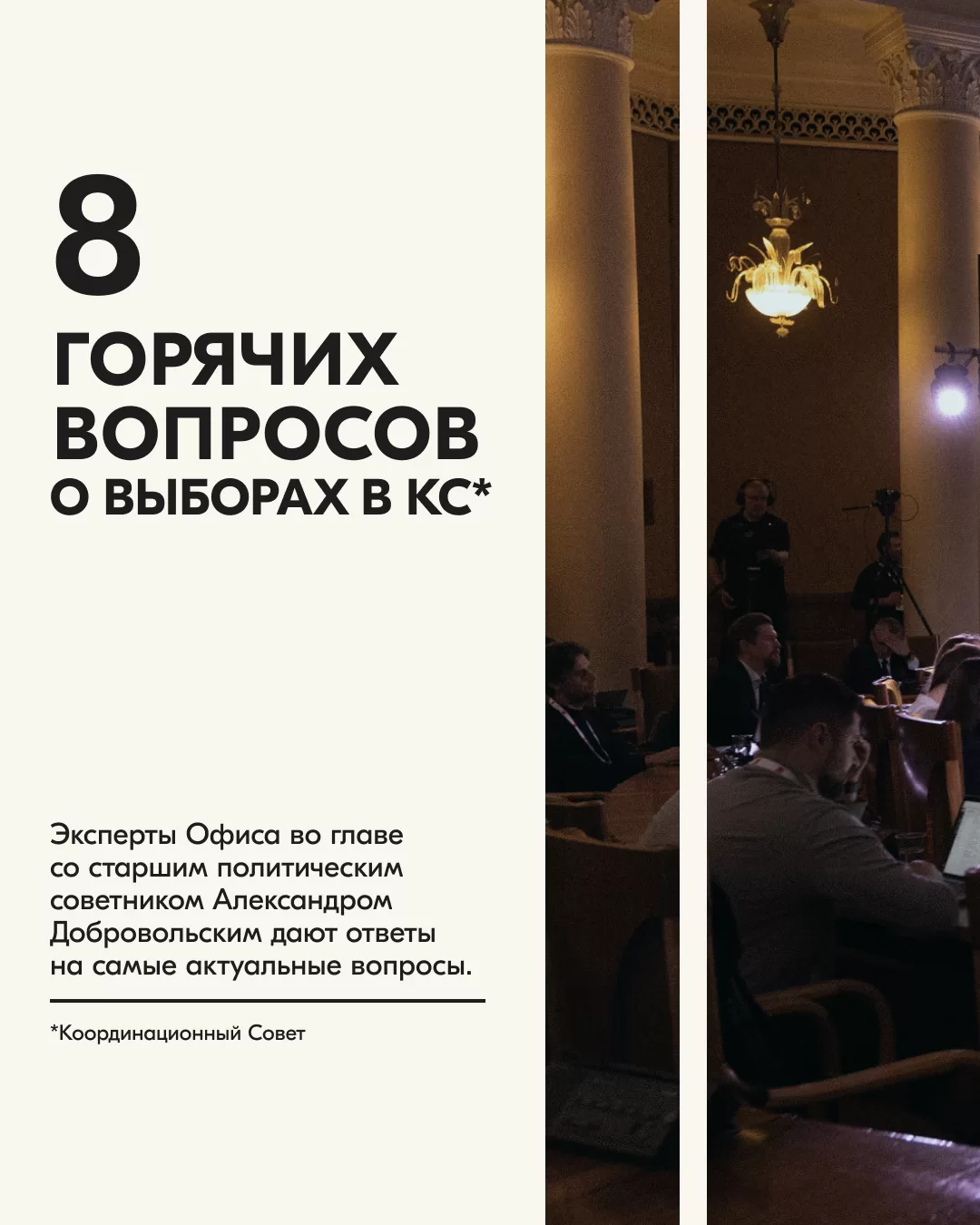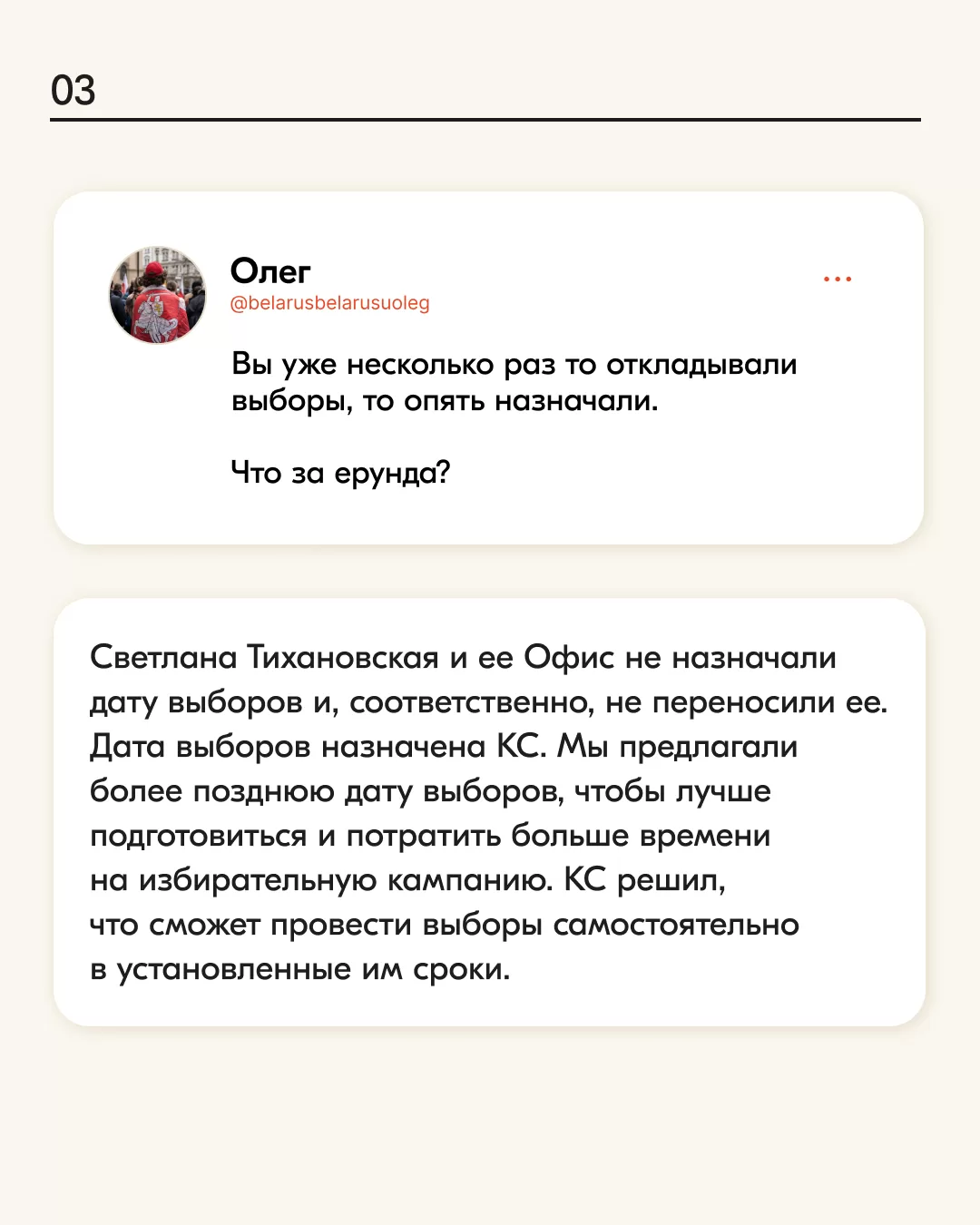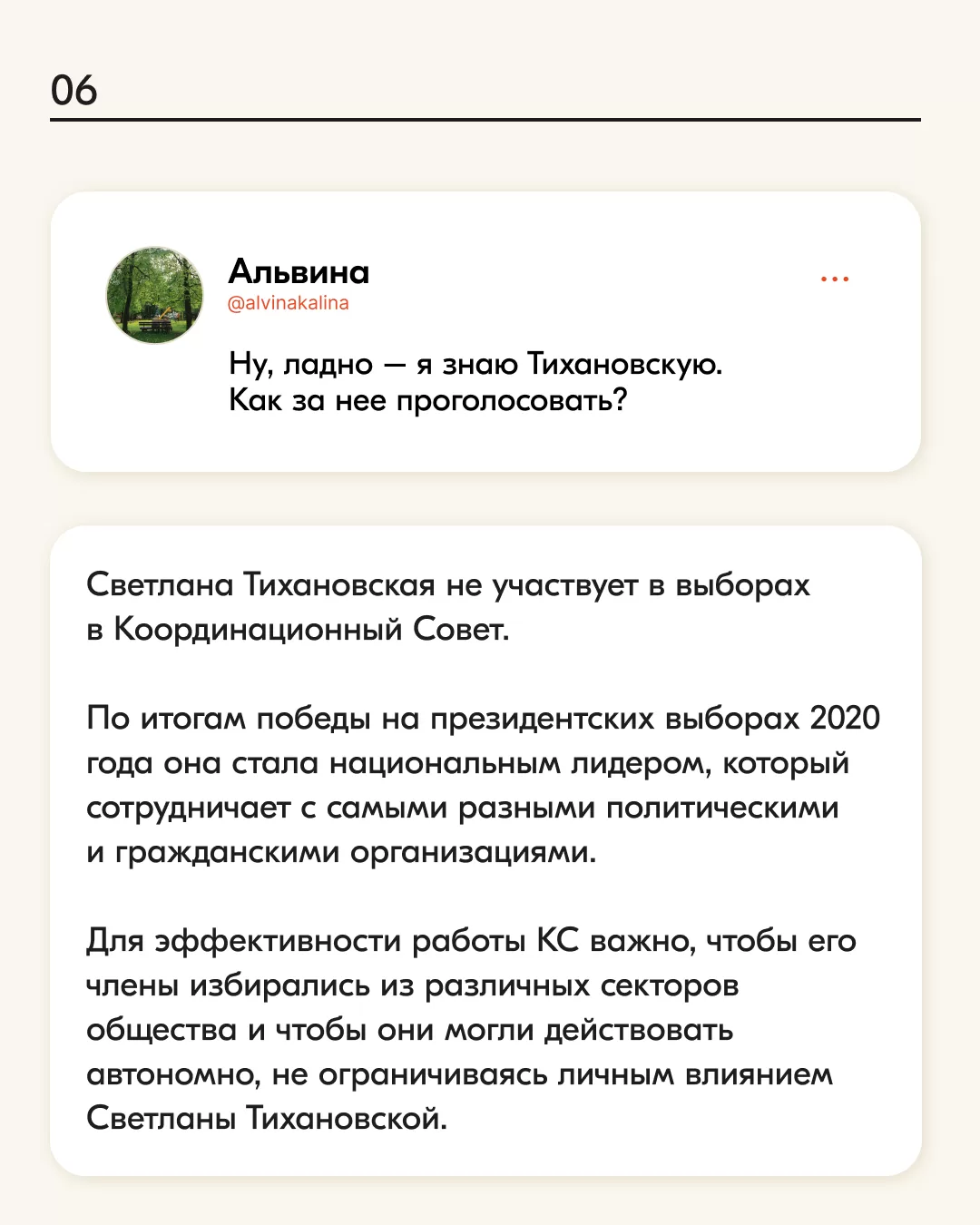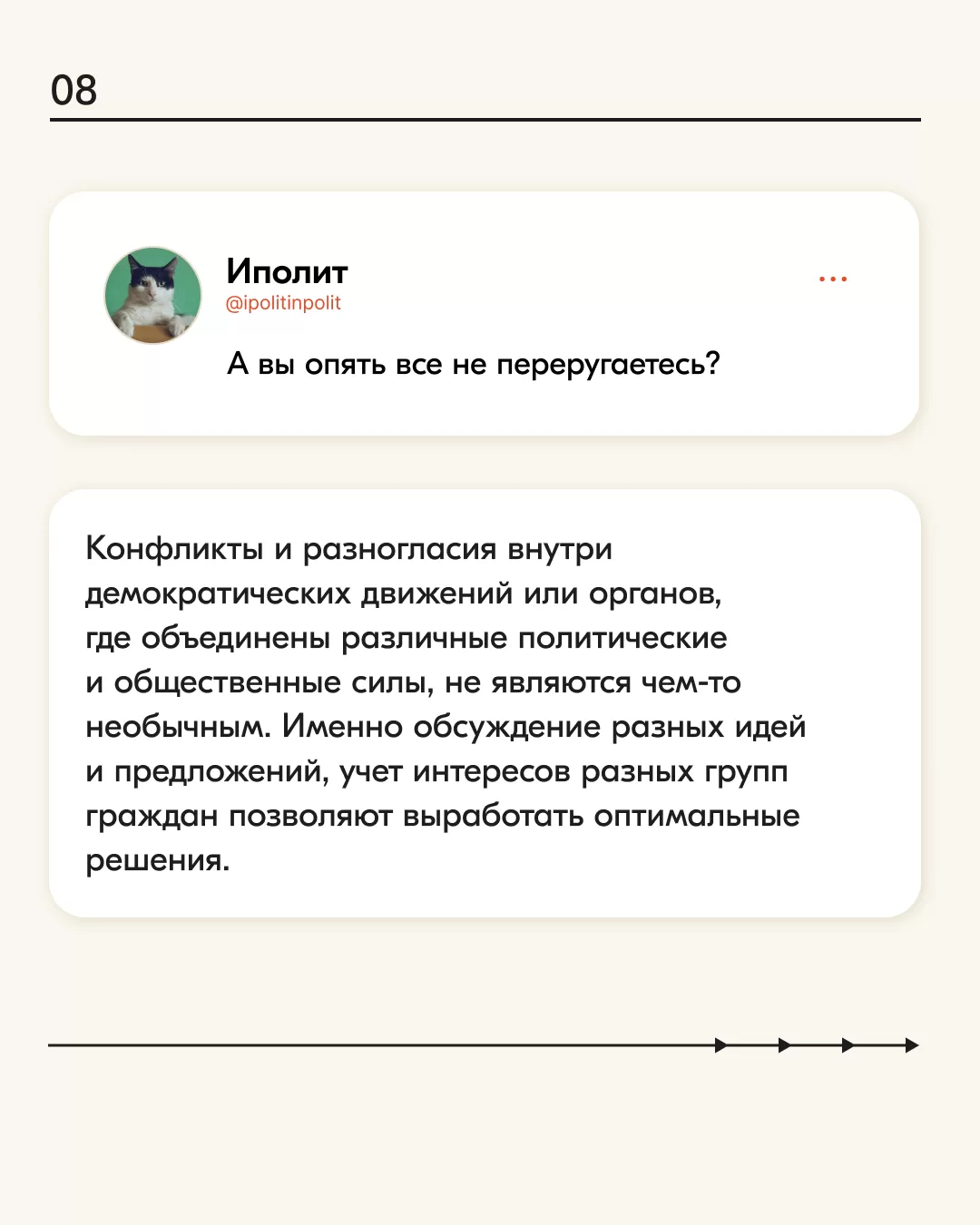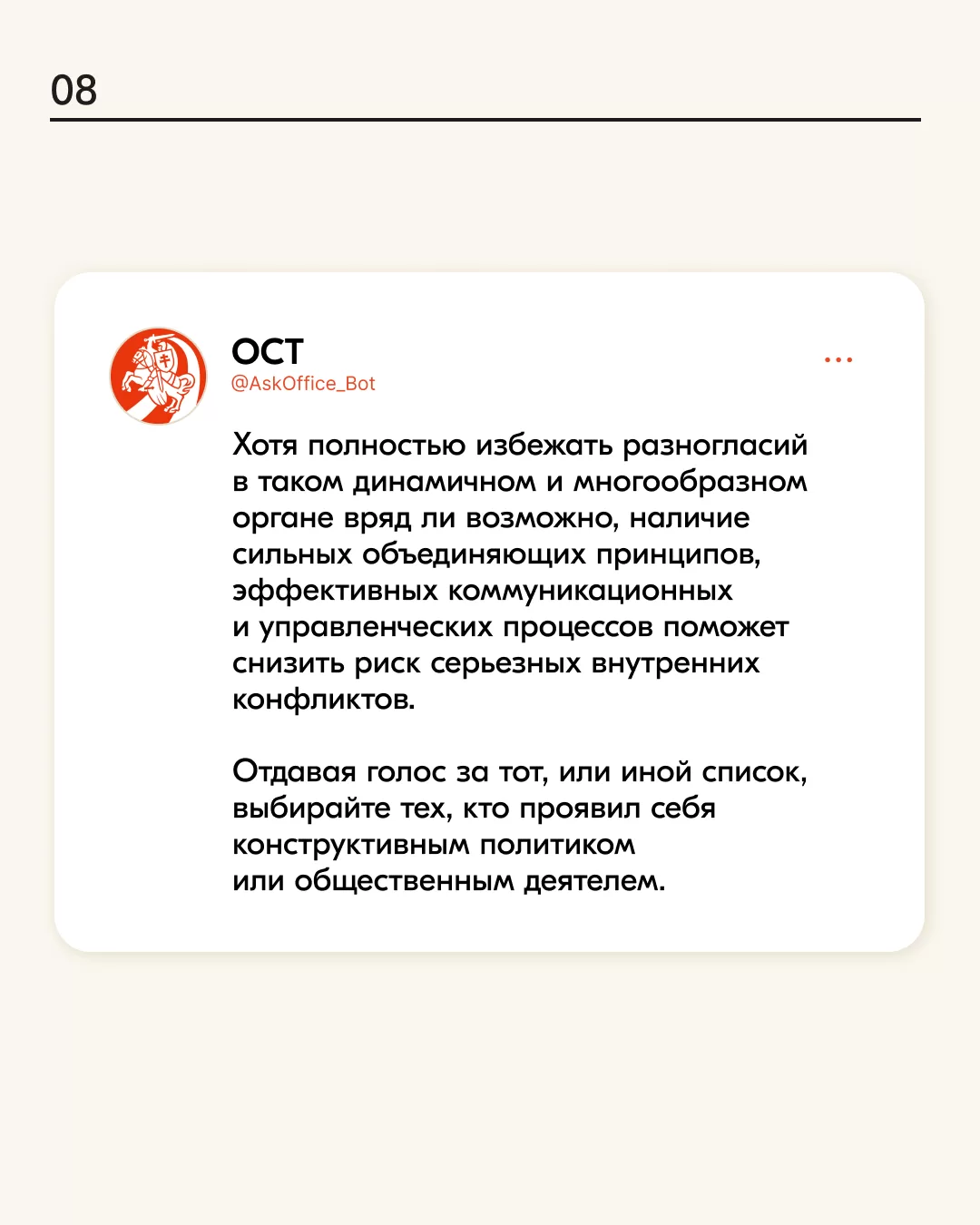The election to the Coordination Council, scheduled for May, has been sparking active debates recently. Belarusians have been trying to figure out whether they need such a political institution, who should be part of it, and what tasks it should solve. Experts of Sviatlana Tsikhanouskaya’s Office, led by Senior Political Advisor, Alexander Dabravolski, provide answers to the most pressing questions.
Why do we even need this Coordination Council of yours?!
In an environment where the regime has effectively eliminated public politics in Belarus, the Coordination Council serves as a unifying platform for various initiatives, political, and civil organizations, facilitating their coordination and collaboration.
Office, Cabinet, Anti-Crisis Management… And now the Coordination Council too! It still has no impact anyway!
In the short term, the impact of the Coordination Council on political processes in Belarus is limited due to the regime’s repression and control. However, in the long term, it can play an important role in laying the groundwork for democratic changes in the country.
Additionally, the Coordination Council provides an opportunity for society, politicians, and individual citizens to be heard, to influence decisions through proposals, criticism, and expression of their attitude towards events and problems in the country. The Council can hold public hearings, discuss and adopt strategic documents, and provide recommendations for the formation of executive bodies.
You’ve postponed the election several times already, then rescheduled it again. What’s going on?
Sviatlana Tsikhanouskaya and her Office has never set the election date and, thus, never postponed it. The election date is determined by the Coordination Council. We have suggested a later election date to better prepare and spend more time on the electoral campaign. The Coordination Council decided that it would be able to conduct the election independently within the deadlines it set.
What are these “lists of candidates”? Why are there so many of them?
We still do not know how many lists of candidates there will be. The nomination process has only just begun. Holding the election by voting for electoral lists and proposed programs is the optimal option in the current situation. This electoral system is called proportional and is widespread in Europe. It is much easier for voters to choose one list out of, for example, ten, than to choose 80 members of the Coordination Council from, say, 300 candidates.
These lists will probably only include the “old-timers” again, everyone who has been in politics since the 1990s?
We will be able to answer this question when the electoral commission registers and publishes all the lists. Diversity is a good thing in a representative body. Participation of both experienced and young people is useful for the cause. We hope to see youth on the lists.
Well, okay, I know Tsikhanouskaya. How do I vote for her?
Sviatlana Tsikhanouskaya is not going to participate in the election to the Coordination Council. Following her victory in the 2020 presidential election, she became the national leader who collaborates with various political and civil organizations. To ensure effective work in the Coordination Council, it is important that its members are elected from different sectors of society and can act autonomously, without being limited by Sviatlana Tsikhanouskaya’s personal influence.
Well, let’s say I voted. What’s next?
Following the voting, a renewed Coordination Council will be formed and determine the priorities of its work. And it is your vote that can influence these priorities. Lists that receive more votes will have more of their members in the new Coordination Council. Each list of candidates will present an electoral program during the election, which you will soon be able to familiarize yourself with.
Are you all going to fall out again?
Conflicts and disagreements within democratic movements or bodies where various political and social forces are united are not unusual. It is precisely the discussion of different ideas and proposals, taking into account the interests of different groups of citizens, that allows for the development of optimal solutions.
Although it is hardly possible to completely avoid disagreements in such a dynamic and diverse body, the presence of strong unifying principles, effective communication, and management processes will help reduce the risk of serious internal conflicts. When casting your vote for one list or another, choose the people who have proved to be constructive politicians or public figures.
